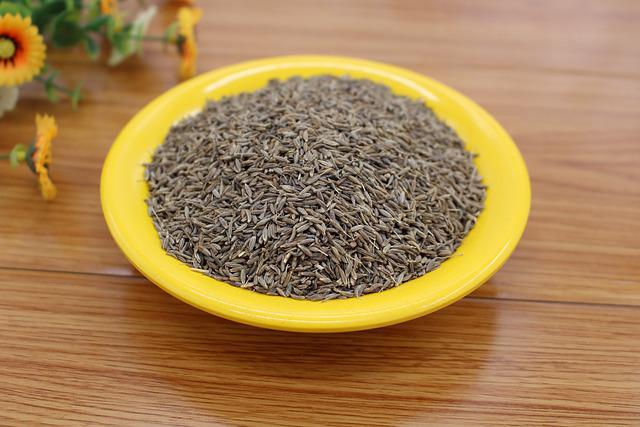Cumin seed, commonly known as jeera, is a common Indian spice that enhances flavor and has a number of health advantages. The seeds of the Cuminum cyminum plant are used to create the spice cumin and interestingly there are a lot of health benefits of cumin seed. In China, India, the Middle East, and the Mediterranean region, cumin is a green plant that grows close to the ground. Cumin seed, the plant’s fruit, is widely used as a spice around the world.
Medical research has turned its attention to cumin since a variety of health benefits have been ascribed to it in anecdotal reports. For thousands of years, cumin has been a staple in human diets. It is cultivated in the Middle East, the Mediterranean region, India, and China. Currently, India is the primary source of most cumin sold in the United States.
Cumin is used as a food flavor and for making perfumes by people all over the world. It is also a well-liked treatment in conventional medicine. A few little seeds of cumin have a lot of health advantages.
Health Benefits of Cumin Seed
For many years, people have used cumin as a remedy for anything from headaches to indigestion and diarrhea. It has been used to treat leprosy, kidney and bladder stones, eye conditions, and even kidney and bladder stones in India. Many of these conventional usages are now being supported by scientific studies.

Antibacterial Effect
According to research, cumin may aid in the killing of some bacteria that might enter your body and cause illness. In tests, cumin was found to inhibit the growth of bacteria like E. coli, which can result in food poisoning. Cumin’s antibacterial characteristics may be the reason why it has been employed as a preservative in the past. (Source)
Cancer Prevention
When bodily cells begin to multiply uncontrollably, cancer can emerge. These aberrant cell groups are what make up tumours. Cumin seeds may inhibit the development of many tumours, including those brought on by colon, stomach, and liver malignancies, according to several animal studies (Source). If cumin can aid in preventing cancer in humans, more research is required to confirm this.
Cholesterol Control
According to numerous research, cumin may aid in lowering cholesterol. In one study, cumin powder mixed with yogurt helped lower “bad” (LDL) and triglyceride levels while raising “good” (HDL) cholesterol. (Source)
Diabetes Management
Diabetes sufferers may find cumin useful in managing their condition’s signs and symptoms. One study discovered that cumin, which has historically been used as an anti-diabetic medication, can help reduce urea levels in the blood, an organic substance that may affect how your body reacts to insulin.
Also Read: Understanding Diabetes: What is Diabetes? Types, Causes, Symptoms, Management
Improve Digestion
According to research, cumin can help with a variety of digestive problems. In one trial, cumin extract dramatically reduced the symptoms of irritable bowel syndrome (IBS), including bloating, stomach pain, and the sudden need to use the restroom (Source)
For many years, people have used cumin as a common folk cure for diarrhea, and some early studies have provided compelling evidence in favour of its use.
Weight Control
Early research suggests that cumin, when consumed as part of a healthy diet, may aid with weight loss. In one study, participants who consumed cumin powder lost weight, decreased their waist circumference, and decreased their body mass index, and (BMI). Another study discovered that cumin pills might be just as good at lowering weight and BMI as a widely used weight loss medication.
Cumin Seeds Nutrition
Flavonoids, which are present in cumin, act as antioxidants in the body. Antioxidants can aid in scavenging erratic substances called free radicals that harm cells. Antioxidants can help stop diseases including cancer, heart disease, and high blood pressure by removing harmful particles from the body.
Cumin is a beneficial source of:
- Vitamin A
- Calcium
- Iron
1 teaspoon of cumin contains:
Calories: 8
Carbohydrates: 1 gram
Risks and side effects of Cumin Seeds
Even in higher dosages, cumin is thought to be very safe and typically harmless. If you decide to use it, there are a few adverse effects to be aware of. Cumin is typically used in doses of 300 to 600 milligrams per day as an herbal supplement.
Although there are many health benefits of cumin seed, according to one research, cumin lowers testosterone levels, which suggests that if males take it, it may reduce their fertility. Women who are pregnant or attempting to get pregnant should bear in mind that cumin has been used in some cultures as a drug to cause miscarriage.
To know about other Indian spices, explore our exclusive section – Healthy Spices.





